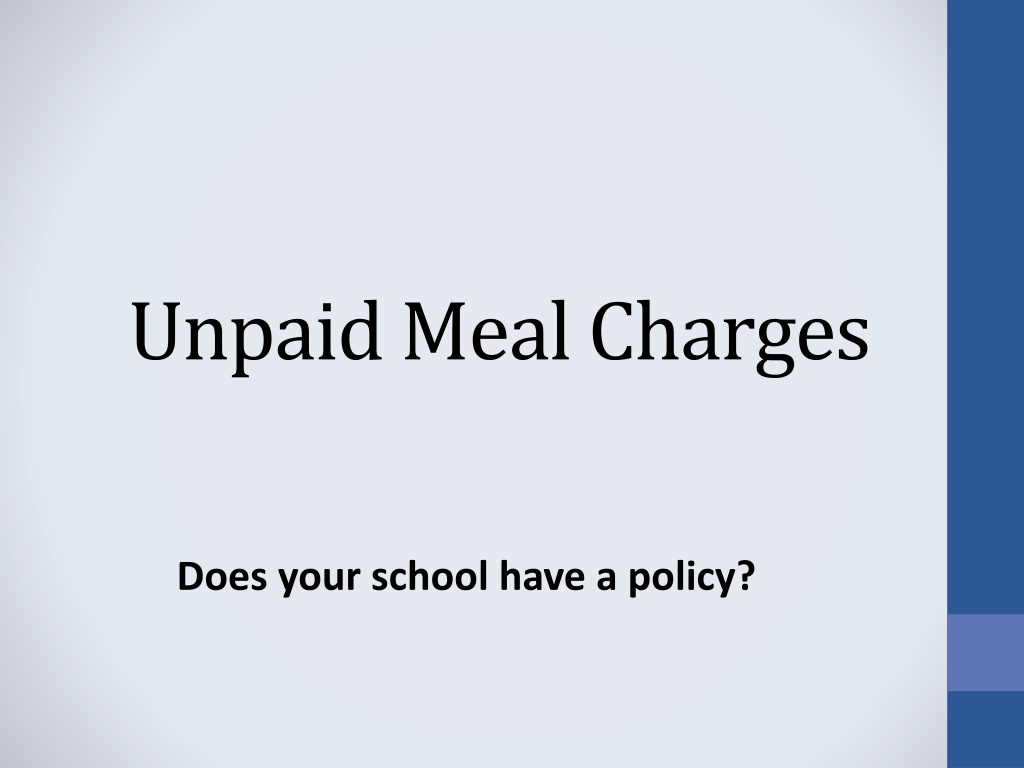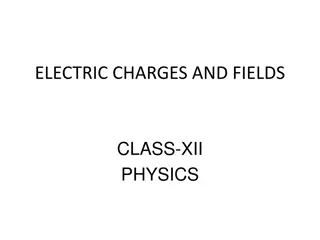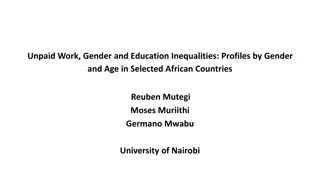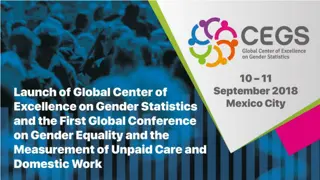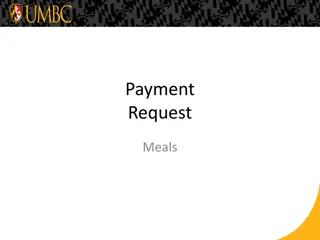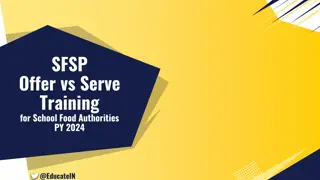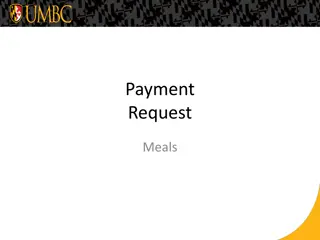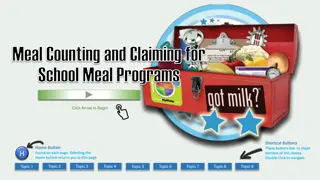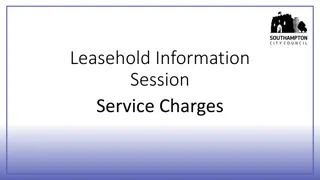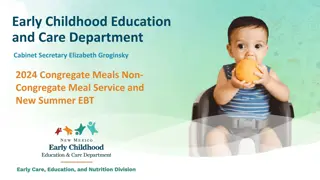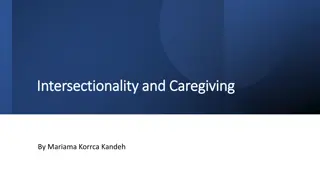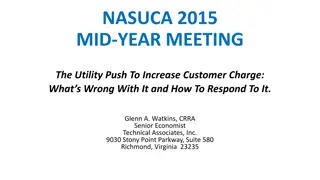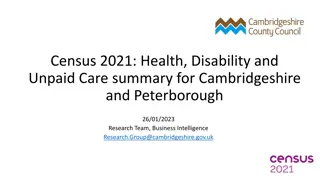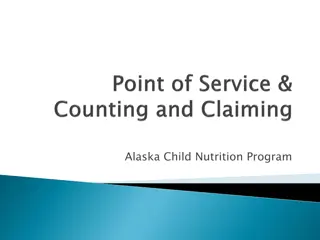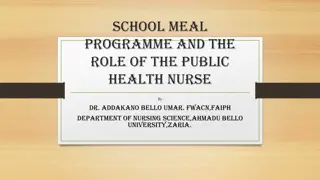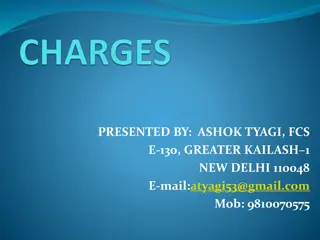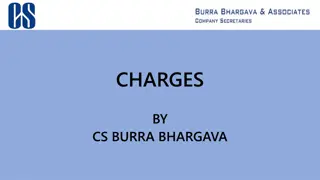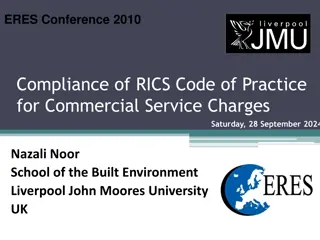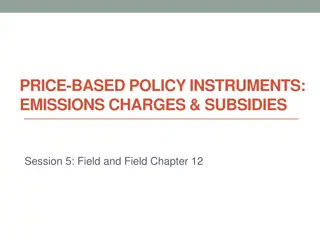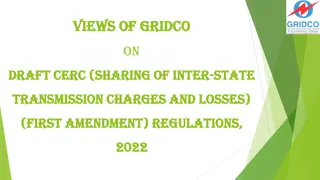Understanding School Policies on Unpaid Meal Charges
Explore the history, requirements, and communication of school policies related to unpaid meal charges, as mandated by the Healthy, Hunger-Free Kids Act of 2010. Learn about local meal charge policies, the importance of having a written policy, and the communication efforts required to ensure all households are informed at the start of each school year. Discover how schools address situations where students do not have funds for meals and the importance of clear policies in overcoming unpaid meal challenges.
Download Presentation

Please find below an Image/Link to download the presentation.
The content on the website is provided AS IS for your information and personal use only. It may not be sold, licensed, or shared on other websites without obtaining consent from the author. Download presentation by click this link. If you encounter any issues during the download, it is possible that the publisher has removed the file from their server.
E N D
Presentation Transcript
Unpaid Meal Charges Does your school have a policy?
UNPAID MEAL CHALLENGE SP 46-2016 Local Meal Charge Policies SP 47-2016 Clarification on Collection of Delinquent Meal Payments NEW SINCE LAST YEAR: SP 23-2017 Unpaid Meal Charges- Q&A SP 29-2017 Overcoming Unpaid Meals
History The Healthy, Hunger-Free Kids Act of 2010 contained a section that required the USDA to review local policies on meal charges, and to make recommendations regarding a local or national policy.
History Your Children who do not qualify for free meals and would like a meal, but do not have money in their account at the time of meal service: how you solve this problem is what the Unpaid Meal Policy really does.
Local Meal Charge Policies The decision has been made to continue to have the meal charge and alternate meal policies made at the local level. Due Date: July 1, 2017. Institute and clearly communicate a meal charge policy.
Local Meal Charge Policies Due Date: July 1, 2017 SFSB- New State Law SB423- Needs defined by rules; however, it affects all of SFSB. It is unknown if law applies to Public Charter Schools. Summary: Prohibits denying a student a meal for failure to pay : 1) 1st21 days of school year and 2) 7 days after the student s meal fund account balance is zero or negative.
Requirements of the Policy Each SFA must have a written meal charge policy but NOT CEP schools. The specifics in the policy are at the discretion of the SFA. The policy must include written procedures regarding the collection of delinquent meal charge debt.
Communication of the Policy SFAs must ensure that the policy is provided in writing to all households at the start of each school year and to households that transfer to the school during the school year. How can your SFA do this?
Communication of the Policy SFAs must provide and train the meal charge policy to all school or SFA-level staff responsible for policy enforcement. Who is this at your school? Who else needs to know about this policy?
The Accounting Part of this Regulation
Clarification on Collection of Delinquent Meal Payments Delinquent debt: unpaid meal charges for which payment is overdue as defined by the local policy. Versus Bad debt: debts which have been determined to be uncollectable.
Delinquent Debt Payment is overdue. Still considered collectable. The timeframe for carrying delinquent debt can be established by the SFA.
Bad Debt Determined to be uncollectable. Must be written off as operating losses. Nonprofit school food service account monies cannot be used to cover the costs related to bad debt. (2 CFR Part 200,subpart E) Non-Federal funds must be used to restore the funds to the nonprofit school food service account.
Review Did we mention: Each SFA have in place by July 1, 2017?
In accordance with Federal civil rights law and U.S. Department of Agriculture (USDA) civil rights regulations and policies, the USDA, its Agencies, offices, and employees, and institutions participating in or administering USDA programs are prohibited from discriminating based on race, color, national origin, sex, disability, age, or reprisal or retaliation for prior civil rights activity in any program or activity conducted or funded by USDA. Persons with disabilities who require alternative means of communication for program information (e.g. Braille, large print, audiotape, American Sign Language, etc.), should contact the Agency (State or local) where they applied for benefits. Individuals who are deaf, hard of hearing or have speech disabilities may contact USDA through the Federal Relay Service at (800) 877-8339. Additionally, program information may be made available in languages other than English. To file a program complaint of discrimination, complete the USDA Program Discrimination Complaint Form, (AD-3027) found online at: http://www.ascr.usda.gov/complaint_filing_cust.html, and at any USDA office, or write a letter addressed to USDA and provide in the letter all of the information requested in the form. To request a copy of the complaint form, call (866) 632-9992. Submit your completed form or letter to USDA by: (1) mail: U.S. Department of Agriculture Office of the Assistant Secretary for Civil Rights 1400 Independence Avenue, SW Washington, D.C. 20250-9410; fax: (202) 690-7442; or email: program.intake@usda.gov. (2) (3) This institution is an equal opportunity provider.
